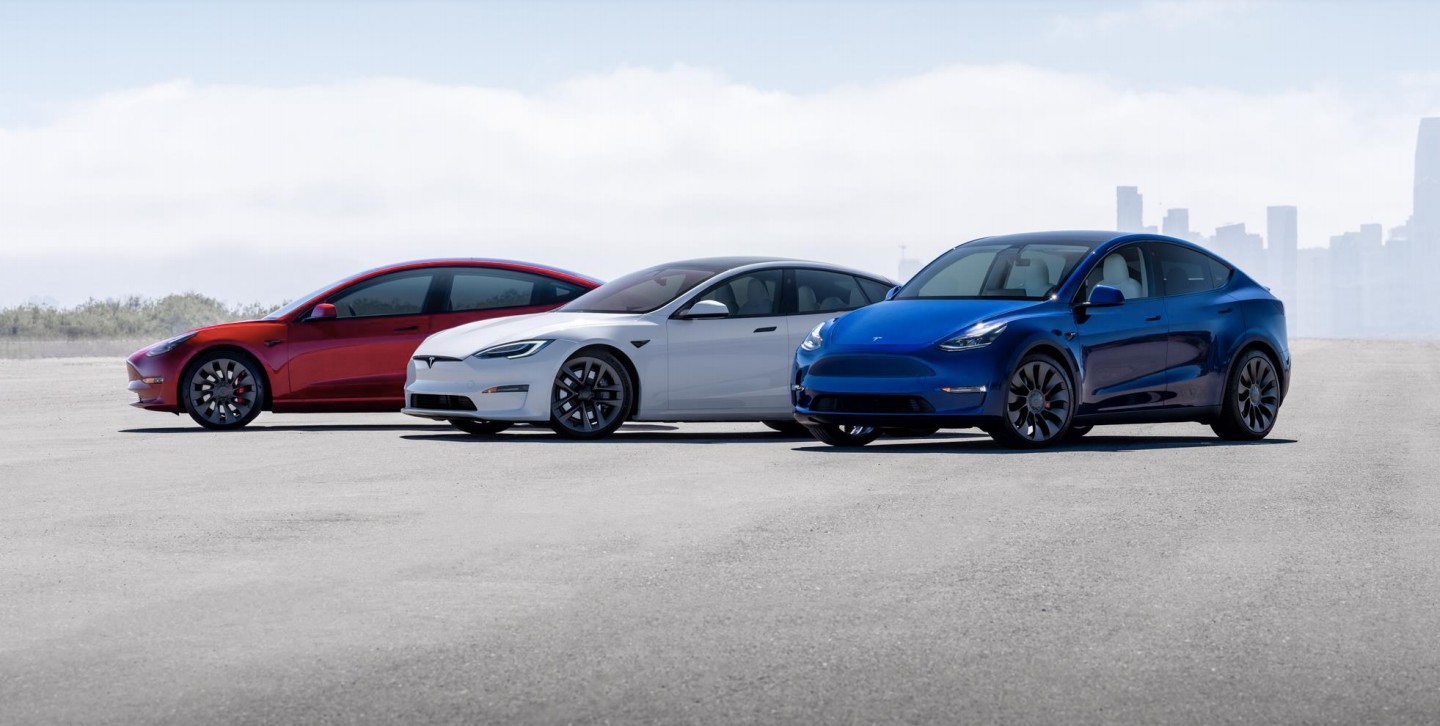
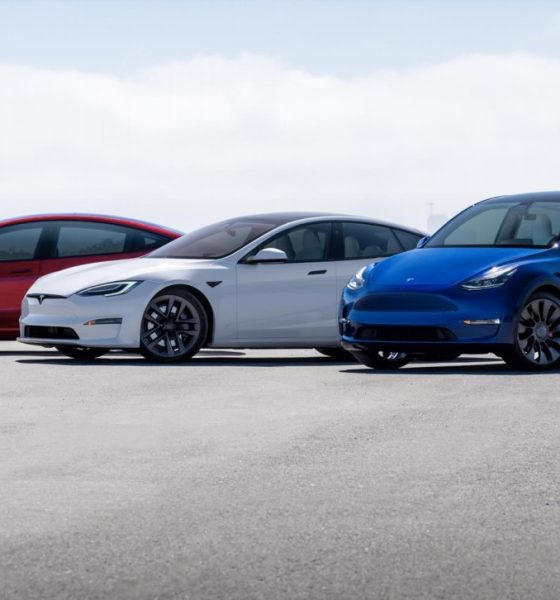
News
Tesla trifecta dominates Consumer Reports’ list of most satisfying cars on the market
A consumer’s love for a vehicle is something truly valuable. Regardless of predicted reliability ratings or the amount of negative media coverage a carmaker receives, the loyalty of customers is something that simply cannot be matched. And in this sense, even an organization such as Consumer Reports, which tends to lean into the anti-Tesla narrative every so often, recently admitted that its list of most satisfying cars on the market is dominated by vehicles from the California-based EV maker.
Purchasing a car is one thing, but buying the same vehicle a second time is something that very few people do, at least unless they are completely satisfied with their purchase. This is something that Consumer Reports’ Annual Auto Survey sought to determine. The idea behind the magazine’s survey was simple: would car owners buy their current vehicles again if given the chance? The survey covers several aspects of the car ownership experience, from comfort, driving, and the intuitiveness of a vehicle’s electronics.
Jake Fisher, senior director of auto testing at Consumer Reports, highlighted the purpose of the Annual Auto Survey. “You want to know how owners like living with a car and how they feel about qualities and features after the initial excitement of a new car wears off,” Fisher said.
As per Consumer Reports’ 2021 Annual Auto Survey, the Tesla Model 3 is the most satisfying car in the United States right now. The all-electric midsize sedan is followed by the larger, gas-guzzling Kia Telluride, but the Tesla Model S is right at the ICE SUV’s heels in third place. The Tesla Model Y ranks as the fifth most satisfying car in the country, just ahead of the Mazda MX-5 Miata, a small sports car that is pretty much the definition of fun driving. This is quite an impressive result for Tesla, especially as Consumer Reports surveyed 27 brands in its recent Annual Auto Survey.
Whats is particularly interesting is the fact that Consumer Reports’ concerns about the Model 3, especially with regards to the vehicle’s infotainment system, seem to be a non-issue with the electric car’s owners. The “historic reliability concerns” that Tesla has according to the magazine also does not seem to bother the electric vehicle’s owners, either, especially as Consumer Reports’ reliability ratings for Tesla’s vehicles include rather unique factors such as paint, trim, and body panels.
Elon Musk, for his part, appears to be pleased with the results of Consumer Reports’ Annual Auto Survey, with the CEO giving the magazine a thumbs up on Twitter. Overall, the results of the magazine’s survey prove that Teslas are really a breed of vehicles unlike any other. The ownership experience they provide is just so unique; it’s almost difficult to compare them with traditional vehicles. It is, in a lot of ways, quite similar to how difficult it was to compare the first iPhone to the flagship Nokias back in the day.
Don’t hesitate to contact us with news tips. Just send a message to tips@teslarati.com to give us a heads up.

News
Tesla dominates JD Power EV Satisfaction ranking, grabbing top two spots
The Model 3 was the highest ranking EV considered, with a score of 804, followed by the Model Y at 797, the BMW i4 at 795, and the BMW iX at 794.
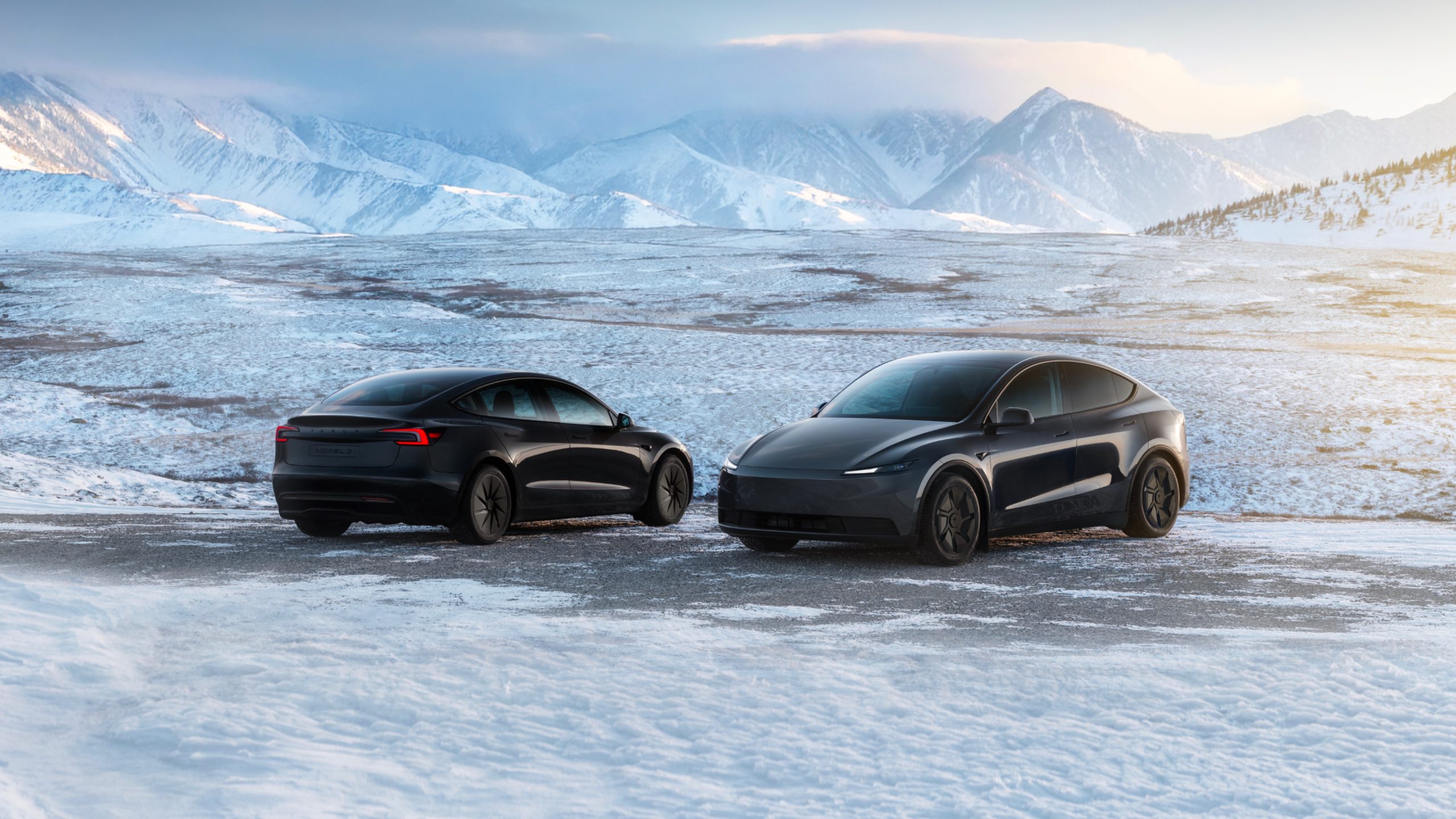
Tesla dominated JD Power’s EV Owner Satisfaction ranking for 2026, grabbing the top two spots in the survey with the Model 3 and Model Y.
The two Tesla models grabbed the first and second spots, respectively, with scores of 804 and 797 out of 1,000 possible points.
Brent Gruber, Executive Director of JD Power’s EV practice, said:
“EV market share has declined sharply following the discontinuation of the federal tax credit program in September 2025, but that dip belies steadily growing customer satisfaction among owners of new EVs. Improvements in battery technology, charging infrastructure, and overall vehicle performance have driven customer satisfaction to its highest level ever. What’s more, the vast majority of current EV owners say they will consider purchasing another EV for their next vehicle, regardless of whether they benefited from the now-expired federal tax credit.”
JD Power’s study showed three key findings: Public charging satisfaction was higher than ever, premium BEVs saw more pronounced quality improvements, and BEVs held their satisfaction ratings compared to plug-in hybrid electric vehicles (PHEVs).
Tesla Grabs Top 2 Spots
Despite what some publications might try to make you believe, Tesla is still the cream of the crop when it comes to EV ownership, and real-world owners surveyed by JD Power will prove that to you.
The Model 3 was the highest ranking EV considered, with a score of 804, followed by the Model Y at 797, the BMW i4 at 795, and the BMW iX at 794. The segment average for “Premium Battery Electric Vehicles” was 786. The Cadillac OPTIQ (762), Rivian R1S (758), Lucid Air (740), Rivian R1T (739), and Audi Q6 e-Tron (690) all finished below that threshold.
Meanwhile, a separate category for “Mass Market Battery Electric Vehicles” had the Ford Mustang Mach-E as the EV with the highest rating at 760. The segment average for this class was 727.
🚨 Tesla topped J.D. Power’s new EV Owner Satisfaction Study for 2026, with the Model 3 (804) and Model Y (797) being the top-rated vehicles, beating out the BMW i4 (795) and iX (794)
Additionally, Tesla Superchargers helped public charging satisfaction rise to new highs:
“The… pic.twitter.com/4WIxoDxHig
— TESLARATI (@Teslarati) February 19, 2026
Tesla Supercharging Improves Public Charging Satisfaction
JD Power said the availability of public charging is “by far the most improved index factor,” and that the consistent growth of publicly available charging has helped push many consumer sentiments in a positive direction.
Most of this is due to the Tesla Supercharger Network and its expansion. However, Tesla owners are also becoming more satisfied with the infrastructure after expanding access to other EV brands, the study said.
Elon Musk
Musk company boycott proposal at City Council meeting gets weird and ironic
The City of Davis in California held a weekly city council meeting on Tuesday, where it voted on a proposal to ban Musk-operated companies. It got weird and ironic.
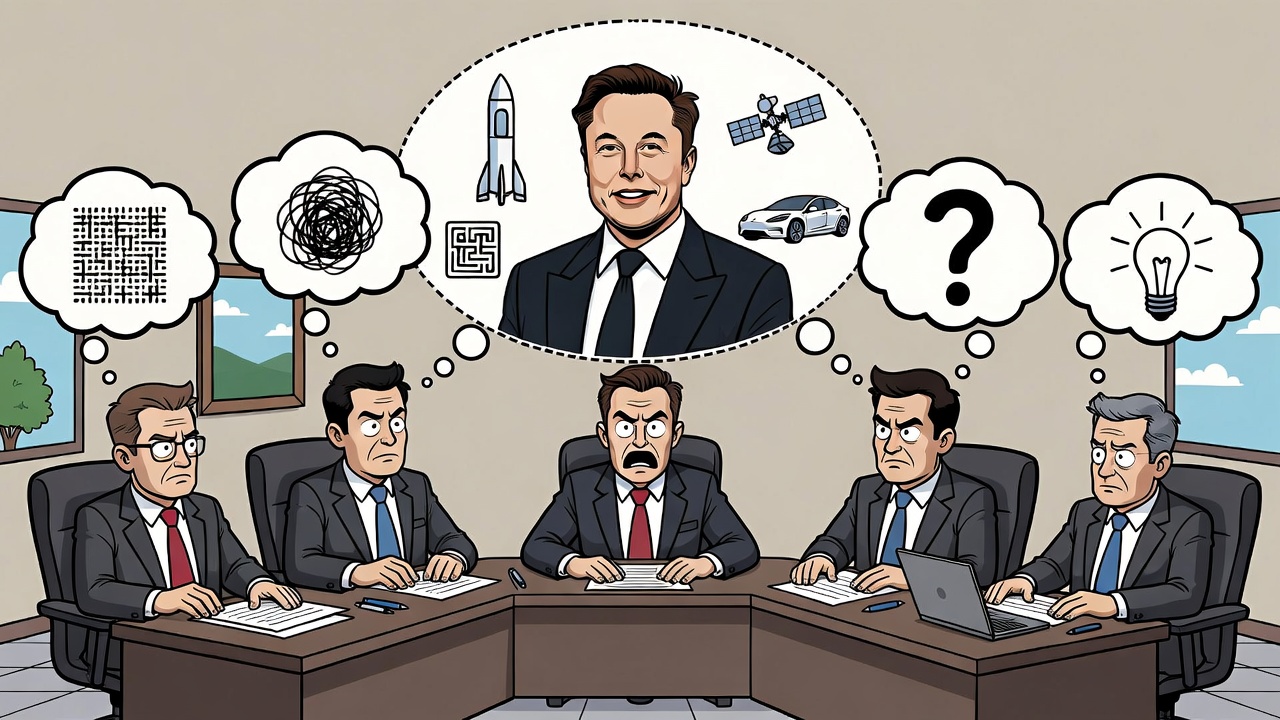
A city council meeting in California that proposed banning the entry of new contracts with companies controlled by Elon Musk got weird and ironic on Tuesday night after councilmembers were forced to admit some of the entities would benefit the community.
The City of Davis in California held a weekly city council meeting on Tuesday, where it voted on a proposal called “Resolution Ending Engagement With Elon Musk-Controlled Companies and To Encourage CalPERS To Divest Stock In These Companies.”
The proposal claimed that Musk ” has used his influence and corporate platforms to promote political ideologies and activities that threaten democratic norms and institutions, including campaign finance activities that raise ethical and legal concerns.”
We reported on it on Tuesday before the meeting:
California city weighs banning Elon Musk companies like Tesla and SpaceX
However, the meeting is now published online, and it truly got strange.
While it was supported by various members of the community, you could truly tell who was completely misinformed about the influence of Musk’s companies, their current status from an economic and competitive standpoint, and how much some of Musk’s companies’ projects benefit the community.
City Council Member Admits Starlink is Helpful
One City Council member was forced to admit that Starlink, the satellite internet project established by Musk’s SpaceX, was beneficial to the community because the emergency response system utilized it for EMS, Fire, and Police communications in the event of a power outage.
After public comments were heard, councilmembers amended some of the language in the proposal to not include Starlink because of its benefits to public safety.
One community member even said, “There should be exceptions to the rule.”
🚨 After the City of Davis, California, held its City Council meeting on Tuesday and voted on a resolution called “Resolution Ending Engagement With Elon Musk-Controlled Companies and To Encourage CalPERS To Divest Stock In These Companies,” it was forced to admit that it needs… pic.twitter.com/hQiCIX3yll
— TESLARATI (@Teslarati) February 19, 2026
Community Members Report Out of Touch Mainstream Media Narratives
Many community members very obviously read big bold headlines about how horribly Tesla is performing in terms of electric vehicles. Many pointed to “labor intimidation” tactics being used at the company’s Fremont Factory, racial discrimination lawsuits, and Musk’s political involvement as clear-cut reasons why Davis should not consider his companies for future contracts.
However, it was interesting to hear some of them speak, very obviously out of touch with reality.
Musk has encouraged unions to propose organizing at the Fremont Factory, stating that many employees would not be on board because they are already treated very well. In 2022, he invited Union leaders to come to Fremont “at their convenience.”
The UAW never took the opportunity.
Some have argued that Tesla prevented pro-union clothing at Fremont, which it did for safety reasons. An appeals court sided with Tesla, stating that the company had a right to enforce work uniforms to ensure employee safety.
Another community member said that Tesla was losing market share in the U.S. due to growing competition from legacy automakers.
“Plus, these existing auto companies have learned a lot from what Tesla has done,” she said. Interestingly, Ford, General Motors, and Stellantis have all pulled back from their EV ambitions significantly. All three took billions in financial hits.
One Resident Crosses a Line
One resident’s time at the podium included this:
Another member of the community did this…a member of the City Council admonished him and it came to a verbal spat https://t.co/zWvKCiCkie pic.twitter.com/1L334qq9av
— TESLARATI (@Teslarati) February 19, 2026
He was admonished by City Council member Bapu Vaitla, who said his actions were offensive. The two sparred verbally for a few seconds before their argument ended.
City Council Vote Result
Ultimately, the City of Davis chose to pass the motion, but they also amended it to exclude Starlink because of its emergency system benefits.
Elon Musk
Elon Musk’s xAI Secures $3B Investment From Saudi AI Firm HUMAIN
The transaction converts HUMAIN’s xAI stake into SpaceX shares, positioning the Saudi-backed firm as a significant minority shareholder in the newly combined entity.
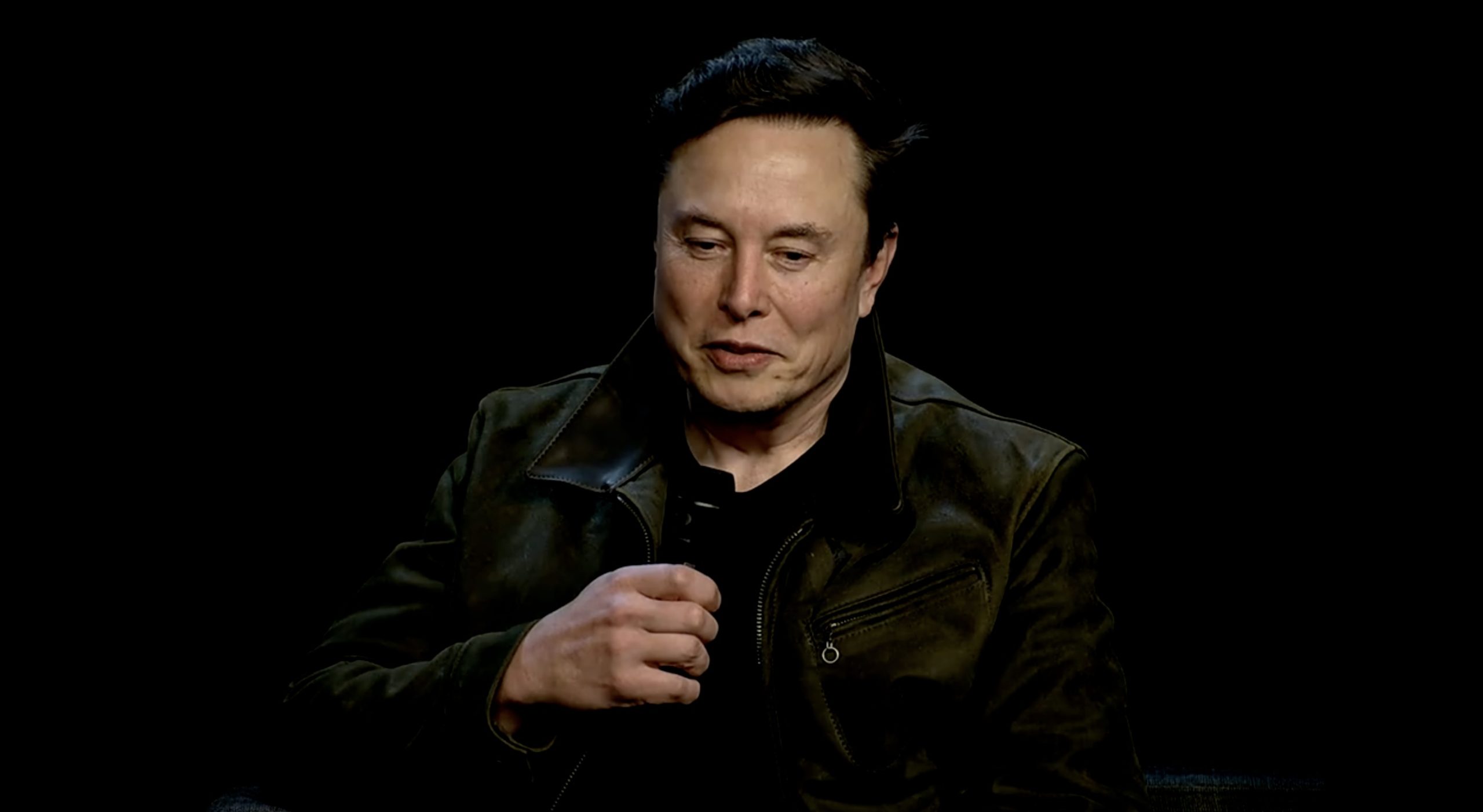
Saudi artificial intelligence firm HUMAIN has confirmed a $3 billion Series E investment in xAI just weeks before the startup’s merger with SpaceX.
The transaction converts HUMAIN’s xAI stake into SpaceX shares, positioning the Saudi-backed firm as a significant minority shareholder in the newly combined entity.
The investment gives HUMAIN exposure to what has been described as one of the largest technology mergers on record, combining xAI’s artificial intelligence capabilities with SpaceX’s scale, infrastructure, and engineering base, as noted in a press release.
“This investment reflects HUMAIN’s conviction in transformational AI and our ability to deploy meaningful capital behind exceptional opportunities where long-term vision, technical excellence, and execution converge, xAI’s trajectory, further strengthened by its acquisition by SpaceX, one of the largest technology mergers on record, represents the kind of high-impact platform we seek to support with significant capital” HUMAIN CEO Tareq Amin stated.
The investment also positions HUMAIN for potential long-term equity upside should SpaceX proceed with a public offering.
The investment expands on an existing partnership announced in November 2025 at the U.S.-Saudi Investment Forum. Under that agreement, HUMAIN and xAI committed to jointly develop more than 500 megawatts of next-generation AI data center and compute infrastructure in Saudi Arabia.
The collaboration also includes deployment of xAI’s Grok models within the kingdom, aligning with Saudi Arabia’s broader strategy to build domestic AI capacity and attract global technology players.
HUMAIN, backed by the Public Investment Fund, is positioning itself as a full-stack AI player spanning advanced data centers, cloud infrastructure, AI models, and applied solutions. The Series E investment deepens its role from development partner to major shareholder in the Musk-led AI and space platform.








